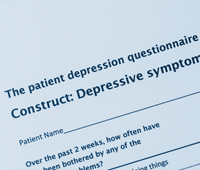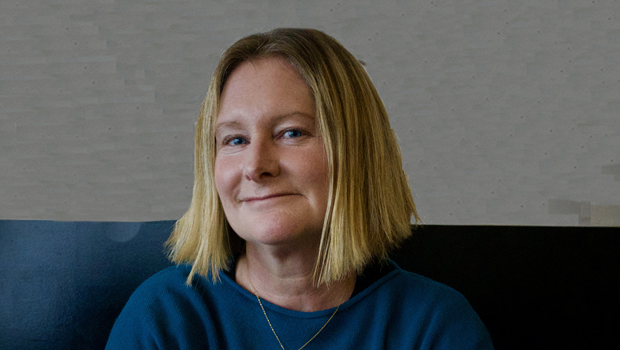Mental Health
Researchers at Kaiser Permanente Washington Health Research Institute (KPWHRI) have a long track record of developing transformative approaches to mental health care.
Part of this legacy is developing innovative care frameworks like the Collaborative Care Model, which was created in partnership with care delivery leaders, clinicians, staff, and patients 30 years ago (when KPWHRI was known as the Group Health Research Institute). More recently, we’ve focused on harnessing computational technologies and unique data resources to develop innovations like suicide risk prediction algorithms. Our researchers also test innovations using pragmatic clinical trials to go beyond tightly controlled experiments and learn what is truly effective for improving patient care in the real world.
Providing timely, high-quality mental health care to patients and communities is core to our mission. As part of Kaiser Permanente, we work within an integrated care delivery system responsible for providing mental health care to over 12.5 million members in communities across the nation. Our researchers leverage strong partnerships with care delivery leaders and providers to understand what research questions we should be asking, while our rigorous qualitative methods focus on understanding patient perspectives. We use powerful statistical methods to evaluate outcomes, and our research continues to inform mental health care worldwide.
Research highlights
 1995: First trial shows collaborative management effective for depression
1995: First trial shows collaborative management effective for depression
Over 30 years ago, KPWHRI physicians and researchers conducted a seminal trial looking at a collaborative approach to depression care involving primary care physicians and consulting psychiatrists. Built from the Chronic Care Model developed by KPWHRI’s Center for Accelerating Care Transformation (ACT Center), this collaborative approach improved adherence to antidepressant treatment among patients with major and minor depression. Since this trial was published, the Collaborative Care Model (CoCM) for depression has been tested and deployed worldwide.
 2010: Mental Health Research Network (MHRN) established
2010: Mental Health Research Network (MHRN) established
A grant from the National Institute of Mental Health provided support for Greg Simon, MD, MPH, and team to establish a new mental health research consortium. The Mental Health Research Network (MHRN) includes 24 research centers embedded in large health care systems, with a shared data infrastructure and shared mission of improving mental health care delivery through research, practice, and policy.
 2015: PHQ-9 depression questionnaire helps identify people at risk of suicide
2015: PHQ-9 depression questionnaire helps identify people at risk of suicide
A landmark study led by KPWHRI researchers showed that the ninth question on a commonly used depression severity measure — the Patient Health Questionnaire-9 (PHQ-9) — helped identify people at risk of suicide. The research, which was replicated in a larger study and among adolescents, helped pave the way for new practices for identifying suicide risk.
 2018: Suicide risk prediction algorithm developed
2018: Suicide risk prediction algorithm developed
A team of KPWHRI researchers and collaborators developed the first model to use electronic health records to predict suicide risk following outpatient visits. The study, which used data from 20 million visits by 3 million patients, was subsequently replicated in adolescents. More recently, qualitative and implementation studies have focused on understanding how to use these algorithms to support patient care.
 2024: Zero Suicide model helps prevent suicide attempts
2024: Zero Suicide model helps prevent suicide attempts
Results from a pragmatic trial at Kaiser Permanente Washington found that implementing the Zero Suicide model for suicide risk screening, assessment, and safety planning in primary care significantly reduced suicide attempts. The trial was a result of a strong research/care delivery partnership supporting the design of integrated care for depression, suicidality, alcohol use, and cannabis and other drug use in primary care. A subsequent study published in 2025 supported the effectiveness of the Zero Suicide approach for people receiving outpatient mental health specialty care as well.
Researchers in Mental Health
 Julie Angerhofer, PhD, MPHAssociate Investigator |
 Ben Balderson, PhDSenior Collaborative Scientist |
 Jennifer F. Bobb, PhDSenior Biostatistics Investigator |
 Katharine A. Bradley, MD, MPHSenior Investigator |
 Yates Coley, PhDAssociate Biostatistics Investigator |
 Leah K. Hamilton, PhDSenior Collaborative Scientist |
 Abisola Idu, MS, MPHCollaborative Biostatistician |
 Eric Johnson, MSSenior Collaborative Biostatistician |
 Morgan Justice, MASenior Collaborative Scientist |
 Gwen Lapham, PhD, MPH, MSWAssociate Investigator |
 Paula Lozano, MD, MPHSenior Investigator; Director, ACT Center |
 Theresa E. Matson, PhD, MPHCollaborative Scientist |
 Rosemary Meza, PhD, MSCollaborative Scientist |
 Robert Penfold, PhDSenior Investigator |
 Dori E. Rosenberg, PhD, MPHSenior Investigator |
 Lily N. Shapiro, PhDCollaborative Scientist |
 Susan M. Shortreed, PhDSenior Biostatistics Investigator |
 Gregory E. Simon, MD, MPHSenior Investigator |
 Rod L. Walker, MSPrincipal Collaborative Biostatistician |
 Paige D. Wartko, PhD, MPHSenior Collaborative Scientist |
 Robert D. Wellman, MSPrincipal Collaborative Biostatistician |
 Brian D. Williamson, PhDAssociate Biostatistics Investigator |
AFFLILIATE RESEARCHERS
Paul Crane, MD, MPH
Professor, Internal Medicine
University of Washington
Patrick Heagerty, PhD
Professor and Chair, Department of Biostatistics
University of Washington
Laura P. Richardson, MD, MPH
Adolescent Medicine
Seattle Children's Hospital
Professor, Department of Pediatrics
University of Washington
Noah R. Simon, PhD
Assistant Professor, Biostatistics
University of Washington
Principal Investigator, Therapeutics Development
Seattle Children’s Research Institute
Emily Williams, PhD, MPH
Investigator
Health Services Research & Development
VA Puget Sound Health Care System





